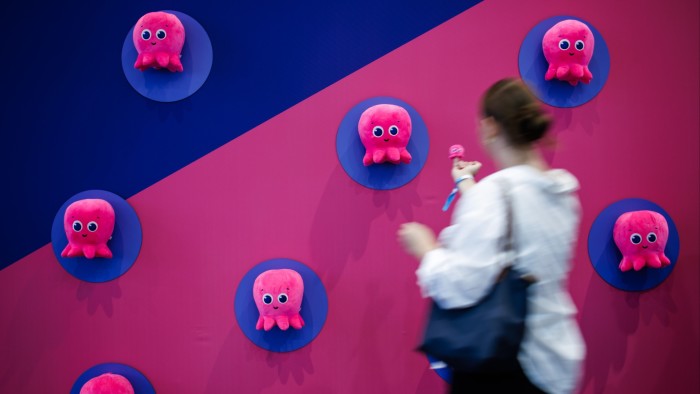Unlock the Editor’s Digest for free
Roula Khalaf, Editor of the FT, selects her favourite stories in this weekly newsletter.
Kraken, named for a giant cephalopod, is the stuff of myth. Can a software platform of the same name bring forth riches from the deep? Octopus Energy, its current owner, hopes so.
Octopus plans to spin off its technology arm, which powers the utility’s back-office functions, as a separate entity with a valuation of perhaps $10bn. That looks rich: Octopus itself, including Kraken, was valued at $1bn less than that in a fundraising last year. It would imply a multiple of 50-odd times last year’s $185mn of sales, while peers on average trade at 10 times.
Perhaps mythical beasts demand heroic assumptions. Kraken’s revenue increased by a third in the year to April 2024; assume it maintains that pace over the subsequent three years, and it would rise to almost $440mn. Applying US software company ServiceNow’s sector-leading forward multiple of 15 times sales still gets to a valuation of just $6.6bn.
True, Kraken has form when it comes to profitability — no mean feat for a tech start-up — and growth. Like traditional software-as-a-service (SaaS) companies, such as Germany’s SAP or Salesforce of the US, Kraken and its ilk reel in regular licensing fees, as well as income for implementing and integrating systems.
This is dull business, but like the suckers of an enormous sea creature, it is sticky. Once companies have migrated their customer billing and other business functions over to a software platform, they tend to stay for the long haul. Kraken already serves around 40 customers other than Octopus, with an aggregate 70mn-plus customers. Its latest win, US National Grid, brought in more than 6mn customers. Beyond energy, it has tentacles in water and telecoms too.
Third party clients like the efficiency wrought by these platforms, which in some cases can, Kraken says, concertina down the need for 17 legacy systems into one. The cache of data is also valuable, enabling suppliers to balance out demand; for example, by offering cheaper rates to run the dishwasher at night.
Octopus is far from the only new wave of disrupters harbouring a software arm. A growing shoal of competitors includes Kaluza, launched by OVO Energy, ENSEK, bought by Centrica last year, and Tridens Technology. Nor is it just electricity. Engine, a software platform created by neobank Starling, is targeting 40 global clients within the next four years. Ecommerce players like Ocado have roots embedded in technology too.
A successful spin-off and subsequent float of Kraken could well set the tone for other tech platforms to cut loose. Bankers pitching deals that might revive the M&A market will hope so. But spin-offs can capsize too. Just ask vitamins-to-lipstick online retailer THG. A deal that valued its tech platform above $6bn fell apart, leaving Ingenuity, the platform, below £100mn. Octopus’ advisers will hope Kraken sets the better benchmark.
